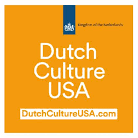Join us for an international, online symposium on flexibility, resident input, and modular building in contemporary housing.
From new models of social housing in Berlin and Barcelona to new applications of prefab construction in Beijing and Brooklyn, panelists will share architectural strategies that connect to broader, structural issues in housing today, including local economies of construction labor, densification in the suburbs, and more.
This symposium extends the themes explored in the exhibition Mass Support: Flexibility and Resident Agency in Housing, now on view at the Spitzer School of Architecture, City College. The exhibit—organized by the Curatorial Research Collective and designed by office ca—investigates the legacy and contemporary relevance of the Stichting Architecten Research (SAR), a Dutch architectural think tank active between 1964 and 1990 that proposed a radical new way of thinking about housing, one that fused the efficiency of industrial construction with the flexibility of user customization. Initially led by John Habraken, the SAR suggested new functions for the construction industry, for households, and, crucially, for architects.
Today, in the midst of a profound global housing emergency, we need many new ideas to address the quality, availability, and attainability of shelter. We also need to examine the promise and pitfalls of overlooked knowledge from the recent past. The work of John Habraken and the SAR offers useful pathways to consider a range of seemingly contradictory contemporary imperatives. How do we balance a commitment to the self-determination of residents with the need to build more housing units quickly and economically? How do we leverage a detailed understanding of the minutiae of zoning and building codes in the service of bold visions to reshape the built fabric of our cities and suburbs? How can we utilize sustained observation of demographic change and household diversity to inform concrete design proposals for housing that empowers its users, that overcomes political and financial inertia, that anticipates change?
Join practitioners and researchers from around the world to discuss these questions in light of a range of contemporary design strategies to increase the supply of housing without sacrificing the self-determination of residents. New York State and AIA CEUs are available to all participants.
Conference program
10 a.m. | Introduction
Welcome: Marta Gutman, Spitzer School of Architecture, City College
SAR historical context: Sergio Figueiredo, Eindhoven University of Technology
SAR contemporary relevance: Cassim Shepard, Spitzer School of Architecture, City College
Open building today: Tom Frantzen, Frantzen et al Architects and Lemniskade
10:45 a.m. | Session I: What can resident control enable politically?New organizational forms for (social) housing development, lessons on the politics of sharing space, working with municipalities, and co-designing for flexibility.
Cristina Gamboa, Lacol / Christoph Heinemann, ifau / Juliane Greb, Büro Juliane Greb. Panel discussion, moderated by Susanne Schindler, ETH Zurich.
1.25 CEUs.
12 p.m. | Session II: What can modular construction enable architecturally?
Modular construction is about more than efficiency and cost: perspectives on modular as a strategy for neighborhood preservation, resident decision-making, and reinvigorating local labor economies.
Deborah Gans, Gans & Co / James Shen, People’s Architecture Office / Tim Swanson, Inherent Homes. Panel discussion, moderated by Laura Wainer, Spitzer School of Architecture, City College.
1.25 CEUs.
2 p.m. | Session III: What can flexibility enable at the neighborhood scale?
Flexibility is about more than design and construction: understanding the potential to retrofit suburban fabric requires a deep understanding of the policies that perpetuate unsustainable and inflexible settlement patterns as well as the local adaptations that enable change.
Michael Piper, University of Toronto / Dana Cuff, UCLA / Renee Chow, UC Berkeley. Panel discussion, moderated by June Williamson, Spitzer School of Architecture, City College.
1.25 CEUs
3:15 p.m. | Closing reflection
Rosalie Genevro, The Architectural League of New York / Karen Kubey, University of Toronto / Cassim Shepard, Spitzer School of Architecture.
Support
This program is supported, in part, as part of the Dutch Culture USA program by the Consulate General of the Netherlands in New York.
This program is co-presented with The Bernard and Anne Spitzer School of Architecture, The City College of New York (CUNY).

![]()

